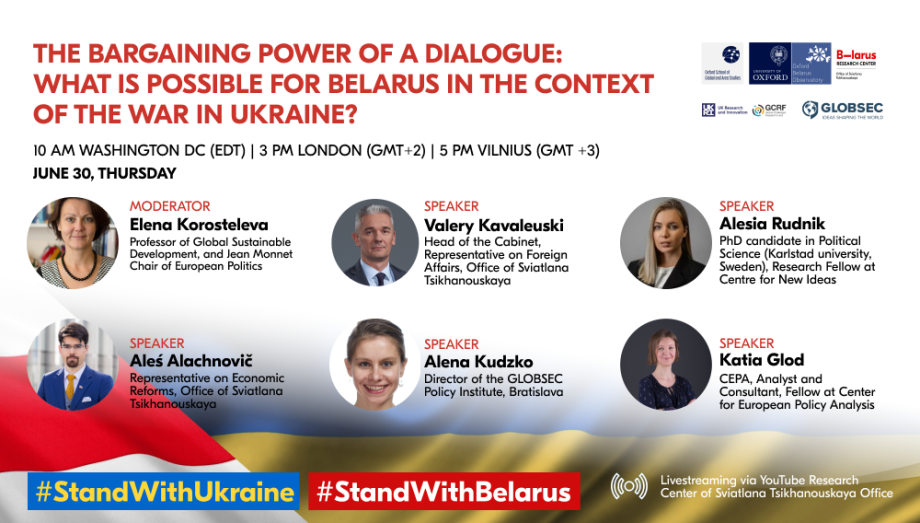The bargaining power of a dialogue: What is possible for Belarus in the context of the war in Ukraine?

Russia's war against Ukraine poses numerous political, security, and economic threats to the region and globally. Against the background of these big threats, the ongoing political crisis in Belarus often gets overlooked. Consequently, Belarus is only mentioned in the context of its government support for the Russian aggression; however the fact that this support goes against the will of its own people is rarely discussed.
In reality, the political crisis in Belarus continues, with more than 1,200 people held as political prisoners, while the economic situation remains challenging. Western countries have been and remain keen to influence the situation in Belarus in a positive way, but find themselves with a limited toolkit, comprising of various sanctions, support for civil society activities and, to some extent, through education. In parallel to this, we see increasing counter-attempts by the Russian and Belarusian authorities to gain bargaining advantages over the West through their threats to global grain supply.
Against this background, we ask: Is there space for dialogue between the West and Belarus? If so, what are the areas for compromise and agreement and who holds the bargaining advantage? In the absence of dialogue, what are the economic and political challenges facing Belarus and the Belarusian people? What economic impact is Russia’s war in Ukraine having on Belarus, the wider region and more globally? What can the Belarusian Democratic Forces and the West do to mitigate these economic, political and security concerns?
These and other questions will be discussed at the last in this cycle of expert webinars jointly convened by the Research Centre of Sviatlana Tsikhanouskaya Office (OST Research Centre) and the Oxford Belarus Observatory (OBO), with the support of the GLOBSEC Policy Institute.
Moderator:
Elena Korosteleva, Professor of Global Sustainable Development, and Jean Monnet Chair of European Politics, University of Warwick
Speakers:
Alena Kudzko, Director of GLOBSEC Policy Institute, Bratislava
Valery Kavaleuski, Head of the Cabinet, Representative on Foreign Affairs, Office of Sviatlana Tsikhanouskaya
Alesia Rudnik, PhD Cand. in Political Ccience (Karlstad University, Sweden), Research Fellow at Centre for New Ideas
Katia Glod, CEPA, analyst and consultant, Fellow at Center for European Policy Analysis
Please register here.